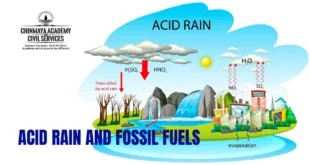Introduction The growing urgency of environmental challenges has prompted innovative solutions across the globe. In this context, India’s Green Credit program emerges as a promising market-based initiative aimed at incentivizing environmentally friendly behavior. Launched in October 2023 as part of the government’s “Lifestyle for Environment” (LiFE) mission, this program seeks …
Read More »The National Clean Air Programme (NCAP)
Introduction: India, a nation undergoing rapid economic growth and urbanization, faces a critical challenge: air pollution. This invisible enemy poses a severe threat to public health, environmental sustainability, and economic productivity. Recognizing the urgency of this issue, the Government of India launched the National Clean Air Programme (NCAP) in January …
Read More »Plastic Treaty
Concept : Plastic pollution is a major environmental threat, harming ecosystems, wildlife, and human health. The global plastic waste problem is projected to worsen significantly without robust intervention. In recognition of this urgency, the United Nations Environment Assembly (UNEA) passed a resolution in 2022 to develop a new global treaty …
Read More »Introduction India has a rich history of co-existence with animals. The Prevention of Cruelty to Animals Act, 1960 (PCA Act) serves as a cornerstone legislation for safeguarding animal welfare in the country. Enacted in 1960, it aims to minimize unnecessary pain and suffering inflicted upon animals. Objectives of the PCA …
Read More »Heat Waves in India: A Burning Challenge
Concept Heatwaves, periods of abnormally high temperatures exceeding seasonal norms, are a growing concern in India. These scorching events pose a significant threat to public health, agriculture, and overall economic well-being. The Scorching Reality: Frequency and Intensity on the Rise India experiences heatwaves primarily between March and June, with the …
Read More »Green Bond
Concept Green bonds have emerged as a financial instrument aimed at channeling investments into environmentally sustainable projects. As the world grapples with climate change and environmental degradation, green bonds offer a mechanism to finance initiatives that mitigate environmental impact and promote sustainability. Definition of Green Bonds: Green bonds are debt …
Read More »Unveiling the Potential: Exploring Sustainable Shrimp Cultivation Practices in India’s Aquaculture Sector for Economic Growth and Environmental Conservation
Concept TABLE OF CONTENTS Introduction Key Features of Shrimp Cultivation: Contribution to Economy and Employment: Government Initiatives and Regulations Introduction • Shrimp cultivation, also known as shrimp farming or aquaculture, is the practice of cultivating shrimp for commercial purposes. • Cultivation of shrimps is a significant economic activity, particularly along …
Read More »Acid rain and Fossil Fuels
Our dependence on fossil fuels like coal, oil, and natural gas comes at a hidden cost. When burned for electricity generation, industrial processes, or transportation, these fuels release harmful pollutants into the atmosphere. The primary polutars behind acid rain are sulfur dioxide (SO2) and nitrogen oxides (NOx). Imagine a power …
Read More »Water Vision @2047
It is an initiative launched by the Government of India with the aim of achieving water security for all by the year 2047. It is a roadmap for sustainable water management in India, focusing on five key areas: The initiative was launched in 2023 and is being implemented by …
Read More »Fog
Formation: The air near the surface cools at night as a result of the land surface cooling. Fog forms when water vapour in the air condenses because cooler air cannot hold as much moisture as warmer air. Early in the morning, when the temperature is at its lowest, fog starts …
Read More » Chinmaya IAS Academy – Current Affairs Chinmaya IAS Academy – Current Affairs
Chinmaya IAS Academy – Current Affairs Chinmaya IAS Academy – Current Affairs









